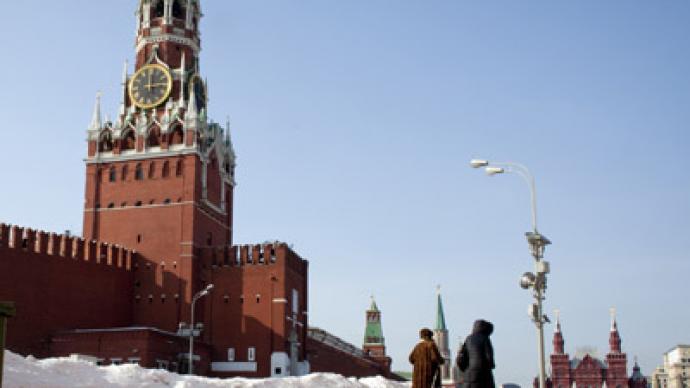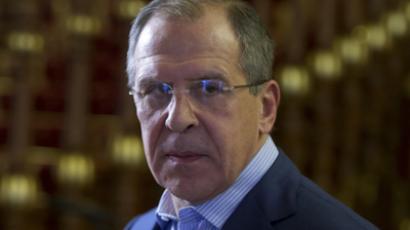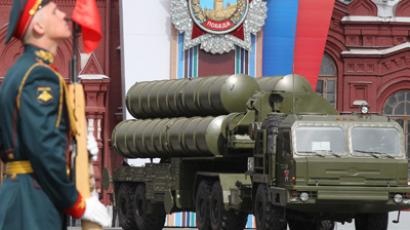Anti-Russian sentiment spikes in US

Moscow and Washington are at loggerheads as Russia - which just overwhelmingly voted Vladimir Putin into the presidential office for the next six years - demonstrates it will independently pursue its own foreign policy agenda.
Tensions between the two countries broke to the surface following a recent UN resolution vote on Syria, which is experiencing a protracted conflict between government and opposition forces.The resolution would have demanded that Syrian government forces retreat from conflict zones and essentially lay down their arms. Russia, alarmed that the document made no similar demands on opposition forces, vetoed the resolution.What followed next was a not-so-diplomatic tit-for-tat between American and Russian diplomats. US Secretary of State Hillary Clinton slammed Moscow’s veto as “despicable,” while the Russian Foreign Ministry responded that Washington’s reaction was “hysterical.”Alexey Pushkov, head of the State Duma Committee for International Affairs, did not betray any secrets when he told reporters on Tuesday that not everyone is happy about Russia’s “independent foreign policy.""There are opinions that Russia must become a ‘servicing partner,’ although this idea is not favored by everyone and everywhere," he added.The Duma deputy then mentioned Putin's stand on foreign policy, outlined in a pre-election article, in which the president-elect warned that foreign actors on the geopolitical stage may be "tempted to solve their problems at someone else’s cost by means of force."The president-elect said that Russia should never be in a situation where it may "tempt anyone by our weakness.”Putin’s warning took on immediate relevancy this week when US Senator John McCain called on fellow colleagues to support a military offensive against Syria."The time has come for a new policy," McCain said during remarks on the Senate floor. "The United States should lead an international effort to protect key population centers in Syria, especially in the north, through air strikes on Assad’s forces."Although McCain’s plan ultimately failed to generate enough support, his comments underscore the tendency on the part of many US politicians and planners to jump headlong into military action – in direct opposition to Russia's stated foreign policy.Meanwhile, with US presidential elections scheduled for November, the Republican nominees are wildly playing the Russian card in an effort to win their party’s nomination.“What the world witnessed in Russia yesterday was a mockery of the democratic process,” Mitt Romney, a leading Republican nominee said following the announcement that Vladimir Putin had won. “Instead of stating that it ‘congratulates the Russian people on the completion of the presidential elections,’ as the Obama administration has done, it should have condemned the flagrant manipulation and media restrictions that marred this election.”(It would be fair to add that Russia’s presidential elections had hundreds of thousands of observers at polling stations around the country, as well as the use of video cameras, causing many foreign observers to applaud Russia’s coordination of the elections).Romney suggested that President Obama’s Russia policy is “set back” rather than “reset”, yet provided little clue as to how the Republicans would “set forward” US relations with Russia, especially given the Republicans’ recent track record on military misadventures.The tit-for-tat over elections has a rather long history between the two countries. In December, Putin expressed his irritation with Washington’s response to Russia’s parliamentary elections, which provoked an outcry from the political opposition, who said the vote was rigged.“I looked at the first reaction of our US partners,” Putin said. “The first thing that the secretary of state [Hillary Clinton] did was say that they were not honest and not fair, but she had not even yet received the material from the observers.”“She set the tone for some actors in our country and gave them a signal,” Putin continued. “They heard the signal and with the support of the US State Department began active work.”The situation between Moscow and Washington hit more turbulence in January with the announcement that Michael McFaul would be the new US ambassador to Russia, making him only the second ambassador to Russia in 30 years who is not a career diplomat.It took just hours for McFaul to attract the wrath of his Russian hosts.Pushkov said McFaul had attracted criticism "by his own actions taken during the first hours on Russian soil,” referring to a meeting held between the US ambassador and several members of the political opposition shortly after McFaul assumed his duties.“It is one thing when such a meeting with representative of the opposition is held in a calm atmosphere, and quite another when it happens as the political situation escalates in Russia in the run-up to the presidential election," Pushkov said.Meanwhile, on Monday night, as the police arrested some protesters who had gathered in the center of Moscow, McFaul posted on Twitter: “Troubling to watch arrests of peaceful demonstrators at Pushkin Square. Freedom of assembly and freedom of speech are universal values.”The Russian Foreign Ministry replied in its own Twitter post: “Police on Pushkin were several times more humane than what we saw in the breakup of the Occupy Wall Street protests, the tent camps in Europe.”Given the increasing tension between Moscow and Washington over critical foreign policy questions, which include the US desire to plant a missile defense shield in Eastern Europe, just miles from the Russian border, it will be very fortunate if the tit-for-tat attacks remain in the form of harmless tweets.Robert Bridge, RT














